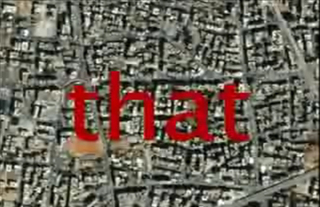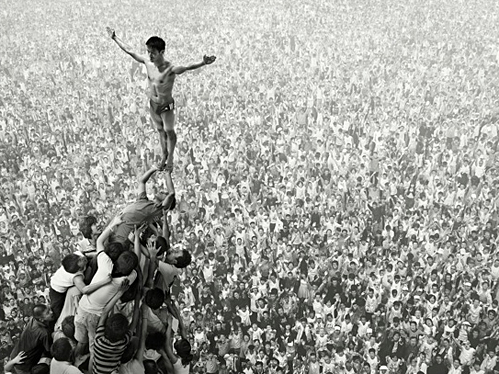In December 2013 I asked my friend Yann Beauvais, the luminous French media artist and scholar, co-founder of Lightcone (Paris fringe movie distributor) and Scratch (weekly fringe exhibitions), if he might spare a few words about his screenings at the Funnel, which were occasional, spread across years. What did he notice, what stood out?
A Small Contribution by Yann Beauvais (December 2013)
In 1987, I was touring North America and New Zealand for nearly two and a half months, from April to June. In my luggage I had two films programs, one of mine with some new works and a program of recent French films. For some screenings I decided to add some French films to my program in order to give audiences the possibility to discover new works.
Before coming to Toronto I went to Buffalo in order to visit Paul Sharits and other friends, but in the haze of the present moment I can’t remember how I went from one place to the other. But I know that a few days after screening at the Funnel I was due to do a pair of shows at the Chicago Cinematheque. It was not the first time I had been to the Funnel, when I did that show, but it was the first time I went as a filmmaker and was received by Anna Gronau, and we did a test in the afternoon to see how we might manage the double-screen films I had brought with me.
I stayed at Anna’s place for two days I think. The screening ran smoothly and without problems, and I remember being impressed by the good conditions, the darkness of the space. It was at that time, following the question and answer period, that I met John Porter and Ross McLaren, among other filmmakers. I might have also met Atom Egoyan, or was that at another screening of mine, one or two years later?
I had a good talks with Anna, and then with Funnel director David McIntosh and (board member) Dot Tuer about the different programs they curated and about Funnel operations and procedures. The different types of programs were very attractive not only because they were international in inclination, but also because of a curatorial emphasis on women filmmakers. The exhibition of gay and lesbian work, along with an emphasis on a diversity of Canadian scenes made the Funnel a place that you had to visit if you were interested in contemporary film culture. I was not aware at the time that the Funnel was facing some sort of crisis which would result in the disappearance of its screenings and the migration of some of its collection to the Canadian Filmmakers Distribution Centre. Anna, David and Dot spoke to me about some of their difficulties, though without surrendering the fullness of their many stories.
I was surprised to discover that the Funnel had shown films from New Zealand the previous year (that I was going to discover in May while visiting for two weeks) and realized how much more provincial we were in France, not having or creating the opportunities to show so many works. At that time, Toronto’s scene seemed very vivid and much more established than in France. My screening took place only two years before the International Experimental Film Congress in 1989 which I did not attend because I was furious and upset at its politics, but this is another story.
At the same time I realized that the Funnel had been working with different academics and critics, and was involved with issues around race, gender and minorities, which was not so common in France during this strange period in which French intellectuals were cut off from what was happening in other cultures.
Going back to the Funnel, I realize that their collection of (mostly member’s) films responded to different criteria than those from Light Cone, the French distributor of experimentalist movies that Miles McKane and I initiated. At the Funnel, films were requested, not simply deposited by the artist, as if the films were chosen according to some educational or strategic plan.
It was not at the Funnel that I met you Mike, but on other occasion, when you were travelling in France, invited by Rose Lowder and Alain Alcide Sudre. On this occasion we organized some Canadian screenings in Paris.
After this flurry of Canadian films, it was with some shock that I received a few months later the news that the Funnel had gone. I could hardly believe it, but at the same time knew that this was always a possibility for any structure involved with avant-garde cinema, not only because this practice is often disqualified and marginalized, but also because fights within the avant-garde are only too common. Due to the fragility of the scene, anything could happen when power is at stake.


